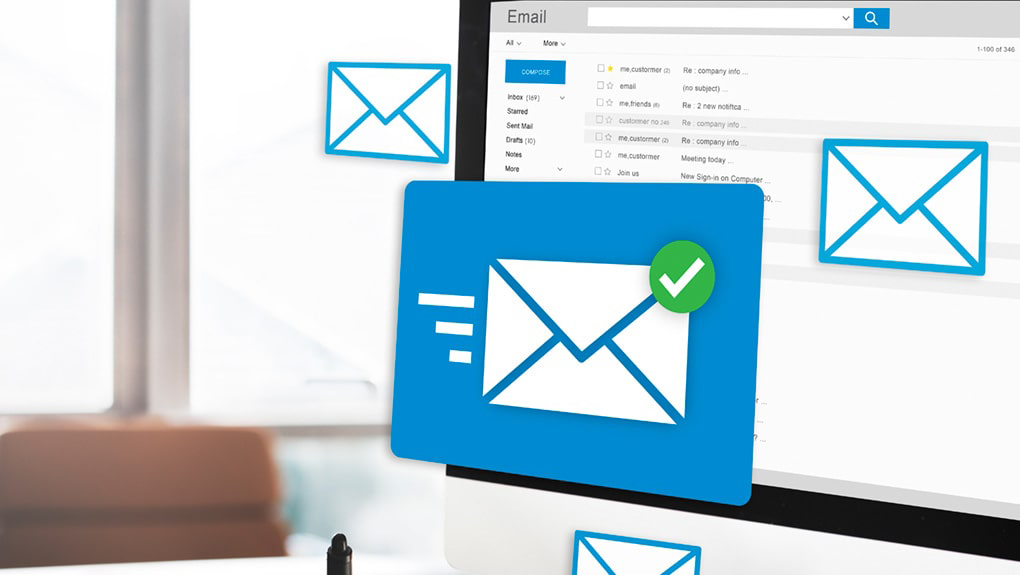|
Getting your Trinity Audio player ready...
|

The Power of Email Marketing Platforms: A Comprehensive Analysis
In the digital age, where consumer attention is divided among various channels, email marketing stands out as a powerful tool for businesses to connect with their audience. With an array of platforms available, each offering unique features and capabilities, it’s essential to delve deep into the world of email marketing to understand its nuances fully.
Exploring the Landscape: A Survey of Leading Email Marketing Platforms
Mailchimp: Harnessing User-Friendly Automation and Analytics
- With over 14 million customers, Mailchimp dominates the email marketing landscape with its intuitive interface and robust features.
- The platform offers comprehensive automation tools, enabling businesses to streamline their marketing efforts and enhance productivity.
- Mailchimp’s analytics provide valuable insights into campaign performance, empowering users to optimize their strategies for maximum impact.
Constant Contact: Simplifying Email Marketing for Small Businesses
- Trusted by over 700,000 customers worldwide, Constant Contact caters to small businesses with its easy-to-use platform and customizable templates.
- The platform excels in list management, allowing users to segment their audience effectively and deliver targeted messaging.
- Constant Contact’s integration with social media platforms enhances its reach and engagement capabilities, making it a preferred choice for small businesses seeking to expand their online presence.
HubSpot: Empowering Marketers with a Comprehensive Suite of Tools
- HubSpot’s all-in-one marketing platform serves over 100,000 customers, offering email marketing, CRM, and automation functionalities.
- The platform’s seamless integration with other HubSpot tools enables users to create cohesive marketing campaigns and track customer interactions across multiple channels.
- HubSpot’s robust reporting capabilities provide actionable insights into customer behaviour, empowering marketers to make data-driven decisions and drive business growth.
Campaign Monitor: Elevating Design and Customization
- Campaign Monitor’s user base of over 250,000 customers benefits from its emphasis on design and customization, with features like a drag-and-drop email builder and dynamic content capabilities.
- The platform’s advanced segmentation options enable users to target specific audience segments with tailored messaging, resulting in higher engagement and conversion rates.
- Campaign Monitor’s focus on customer support and training ensures that users maximize the platform’s capabilities and achieve their marketing objectives effectively.
Sendinblue: Uniting Email and SMS Marketing for Enhanced Engagement
- With over 180,000 customers worldwide, Sendinblue offers email marketing, SMS marketing, and transactional email services, catering to businesses of all sizes.
- The platform’s automation and personalization features enable users to create highly targeted campaigns that resonate with their audience and drive results.
- Sendinblue’s intuitive interface and affordable pricing make it an attractive option for businesses seeking to leverage multiple channels for customer engagement and retention.
Understanding the User Landscape: Industries and Applications
E-commerce Companies: Driving Sales and Customer Loyalty
- E-commerce businesses leverage email marketing to promote products, announce sales, and re-engage inactive customers.
- By segmenting their audience based on purchase history and browsing behaviour, e-commerce marketers deliver personalized recommendations and offers, resulting in higher conversion rates and customer satisfaction.
B2B Businesses: Nurturing Leads and Fostering Relationships
- B2B companies utilize email marketing to nurture leads throughout the sales funnel, providing valuable content and insights to educate and engage prospects.
- Automated drip campaigns and personalized messaging enable B2B marketers to deliver timely and relevant communications that address the unique needs and pain points of their target audience.
Content Creators: Building Community and Driving Traffic
- Bloggers, podcasters, and YouTubers harness the power of email marketing to engage their audience, share valuable content, and drive traffic to their platforms.
- By offering exclusive content, updates, and promotions via email, content creators foster a sense of community and loyalty among their subscribers, leading to increased engagement and monetization opportunities.
Service-Based Businesses: Establishing Authority and Generating Leads
- Consultants, agencies, and freelancers leverage email marketing to showcase their expertise, offer valuable insights, and generate leads for their services.
- Thought leadership content, case studies, and testimonials help service-based businesses build credibility and trust with their audience, driving inquiries and conversions.
Unveiling the Advantages: Why Email Marketing Reigns Supreme
Cost-Effectiveness: Maximizing ROI with Minimal Investment
- Compared to traditional marketing channels such as print or television advertising, email marketing offers a higher return on investment (ROI) at a fraction of the cost.
- With no printing or postage expenses, businesses can allocate their marketing budget more efficiently and achieve greater reach and impact with email campaigns.
Targeted Communication: Personalization at Scale
- Email marketing enables businesses to segment their audience based on demographics, behaviours, and preferences, allowing for highly targeted and personalized messaging.
- By delivering relevant content and offers to specific audience segments, businesses can increase engagement, conversion rates, and customer satisfaction.
Measurable Results: Data-Driven Decision Making
- Email marketing platforms provide robust analytics and reporting capabilities, allowing businesses to track key metrics such as open rates, click-through rates, and conversion rates.
- By analyzing campaign performance data, businesses can identify trends, optimize their strategies, and continuously improve the effectiveness of their email marketing efforts.
Automation: Streamlining Workflows and Saving Time
- Automation features such as welcome emails, drip campaigns, and abandoned cart reminders enable businesses to deliver timely and relevant communications to their audience without manual intervention.
- By automating repetitive tasks and workflows, businesses can streamline their marketing processes, increase efficiency, and focus on strategic initiatives that drive growth.
Global Reach: Connecting with Audiences Worldwide
- With billions of email users worldwide, email marketing offers unparalleled reach and scalability, enabling businesses to connect with audiences across geographical boundaries and time zones.
- Whether targeting local markets or expanding internationally, businesses can leverage email marketing to reach new customers, strengthen brand awareness, and drive revenue growth.
Confronting the Limitations: Challenges and Considerations
Deliverability Challenges: Navigating Spam Filters and Sender Reputation
- Despite its effectiveness, email marketing faces challenges related to deliverability, as emails may end up in spam folders due to spam filters or poor sender reputation.
- Businesses must adhere to best practices for email authentication, list hygiene, and content quality to improve deliverability and ensure that their messages reach the intended recipients’ inboxes.
Content Saturation: Standing Out in a Crowded Inbox
- With the average office worker receiving over 120 emails per day, businesses must find creative ways to capture attention and avoid being overlooked or ignored.
- Personalization, segmentation, and compelling content are essential strategies for cutting through the clutter and engaging recipients effectively.
List Management: Building and Maintaining an Engaged Subscriber Base
- Building an engaged email subscriber list requires time, effort, and a strategic approach to attract and retain subscribers.
- Businesses must focus on providing value, incentivizing subscriptions, and nurturing relationships with their audience to keep subscribers engaged and interested in their content and offerings.
Design Limitations: Balancing Aesthetics and Functionality
- While email marketing platforms offer a variety of templates and design tools, businesses may encounter challenges in balancing aesthetics and functionality. While visually appealing designs can capture attention and reinforce brand identity, overly complex layouts or heavy graphics can negatively impact email deliverability and load times. Moreover, ensuring consistency across different email clients and devices presents a significant challenge, as variations in rendering can affect the user experience. Striking the right balance between creative design elements and practical considerations is crucial to maximizing the effectiveness of email campaigns and optimizing engagement and conversion rates. Additionally, businesses must prioritize accessibility and usability to accommodate diverse audiences and ensure an inclusive experience for all recipients.
All in all, email marketing remains a cornerstone of digital marketing strategies for businesses of all sizes and industries. By leveraging advanced platforms and innovative strategies, businesses can unlock the full potential of email marketing to drive engagement, nurture leads, and generate revenue. Despite its challenges, such as deliverability concerns and content saturation, the advantages of email marketing, including cost-effectiveness, targeted communication, and measurable results, far outweigh its limitations. As technology continues to evolve and consumer preferences shift, staying informed about the latest trends and innovations in email marketing will be essential for maintaining a competitive edge and achieving long-term success in today’s digital landscape.




